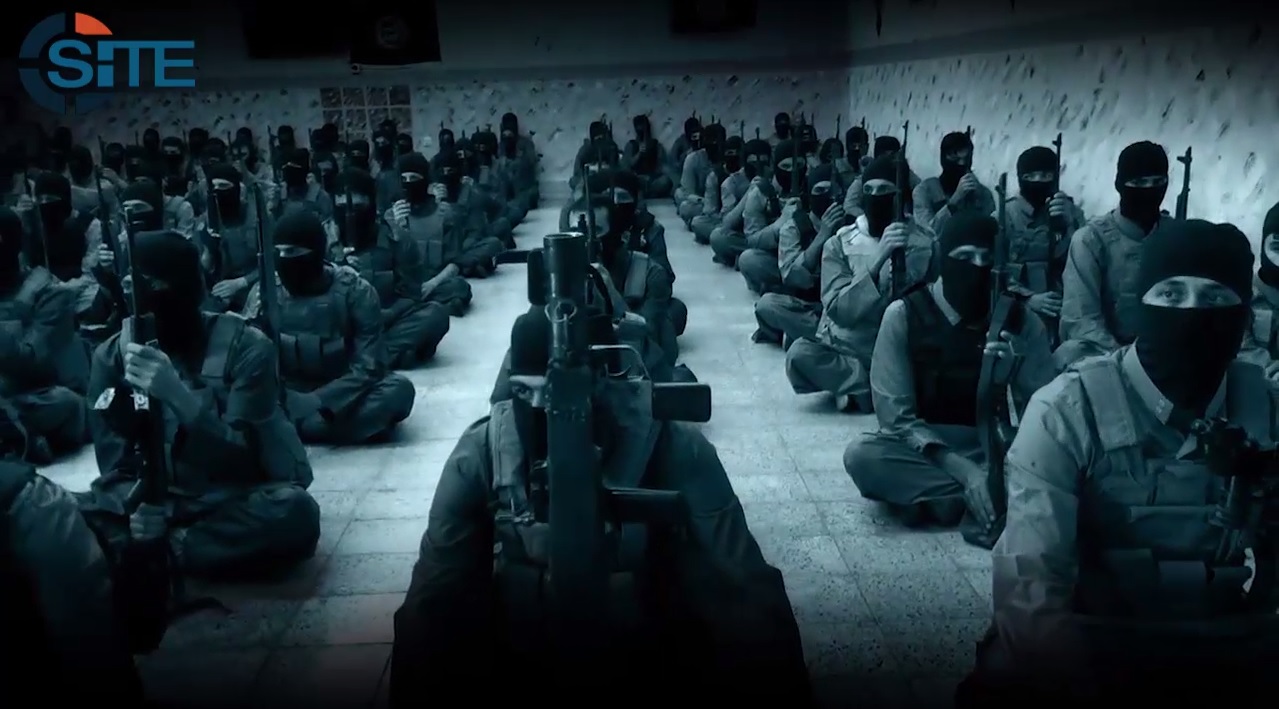The Islamic State Surges

The Islamic State (IS) has begun a new offensive on the Yazidis and Kurds in Northern Iraq. While reports are still tentative, it seems that IS has launched a three-pronged incursion into areas that they were previously expelled from by Peshmerga fighters and Iraqi security forces.
There were a number of simultaneous attacks on Kurdish forces as well as a fresh assault on Mosul Dam and a separate attempt to take villages belonging to Yazidis in Sinjar. This latest offensive comes on top of the continuing onslaught by IS against the Syrian Kurdish town of Kobani. Despite airstrikes by the U.S. and intervention by the Kurdish militia (the YPG), IS forces managed to take a sizeable portion of the town last week and has forced nearly 200,000 residents into flight across the border into Turkey. The U.S. began an increased tempo of bombings and airdropped supplies to the Kurds (some of which went awry), but IS soldiers claim that the airstrikes have not stopped the advance of their forces.
There is no doubt about the growth of IS capacity and capabilities, and the danger that the group therefore presents to the U.S. and others.
There is no doubt about the growth of IS capacity and capabilities, and the danger that the group therefore presents to the U.S. and others. Along with an increased tempo of offensives, three other important developments over the past few weeks suggest that, as with al-Qaeda (AQ), the threat that the group poses has increased, rather than declined since the intervention by the U.S. and its coalition partners in Iraq and Syria. These developments include new groups formed in support of IS; terrorist plots against the U.S., Canada, and others; and growing calls from leaders for unity between IS and AQ.
The astonishing ability of IS to carry out simultaneous, sophisticated offensives is especially troubling. While sustaining the assault against Kobani, IS was able to first engage in widespread attacks throughout Anbar Province in Iraq and then to launch the latest offensive in Northern Iraq. From all reports, IS is conducting a style of warfare that includes regular (i.e. conventional) as well as irregular tactics in these three widely separated places, which indicates a stunning growth in capacity for the group. Since IS must also be suffering rather serous losses from the air campaign carried out by the U.S., as well as the counterattacks by Kurds and others in Iraq and Syria, the fact that the group has continued to expand its offensive capabilities suggests that it has been successful at recruiting and training new soldiers for its army.
Meanwhile, new groups of IS supporters appear to have formed in countries around the globe. In addition to swearing their loyalty to Abu Bakr al-Baghdadi, they are also, in many cases, pledging to carry out attacks against those countries involved in the U.S-led military coalition. The appearance of IS jihadist groups in the Philippines, Afghanistan-Pakistan, the “Land of Kinana” (i.e. Egypt), the “Land of Hind” (India), and some part of the Tehrik-e-Taliban in Pakistan shows the appeal that the group holds around the globe. With the exception of this latter unit, none of the new groups have claimed to have a relationship with other jihadist organizations, suggesting that IS might be radicalizing fresh recruits to the global fight rather than co-opting them from previously established groups like AQ and its affiliates.
 Beside the declarations of the new groups, there is other evidence of the intent of IS to join the global jihad against the U.S. and its allies. In his first statement after a long hiatus, the spokesman for IS, Abu Muhammad al-‘Adnani, called specifically for attacks against the French, Australians, Canadians, and the U.S., as well as any citizens of those countries that have joined the coalition. Significantly, ‘Adnani also said that IS would carry out retaliatory strikes against the U.S. homeland “when this crusade of yours collapses.” This suggests that even if the U.S. were to stop its airstrikes and withdraw, IS would still remain a potential source for attacks against the homeland. A number of individual IS fighters have echoed ‘Adnani’s incitement, calling for lone wolf attacks in Britain, retaliation against France, and attacks against Canada.
Beside the declarations of the new groups, there is other evidence of the intent of IS to join the global jihad against the U.S. and its allies. In his first statement after a long hiatus, the spokesman for IS, Abu Muhammad al-‘Adnani, called specifically for attacks against the French, Australians, Canadians, and the U.S., as well as any citizens of those countries that have joined the coalition. Significantly, ‘Adnani also said that IS would carry out retaliatory strikes against the U.S. homeland “when this crusade of yours collapses.” This suggests that even if the U.S. were to stop its airstrikes and withdraw, IS would still remain a potential source for attacks against the homeland. A number of individual IS fighters have echoed ‘Adnani’s incitement, calling for lone wolf attacks in Britain, retaliation against France, and attacks against Canada.
The arrests of individuals and groups in Europe show that there are radicalized people who might be open to these appeals. In early October, British police arrested a group with connections to IS that was planning an attack in that country; the Dutch arrested an individual planning attacks on law enforcement, while Germany has detained several men who were either trained by IS or actively engaged in supporting the group; and police in Melilla picked up an active terror cell consisting of both Spaniards and Moroccans. While it is too early to say whether the Canadian attacks in Toronto and St-Jean-sur-Richelieu were launched in response to IS’s incitement, it is safe to say that the focus of both terrorists on killing members of the armed services is precisely the sort of attacks that ‘Adnani hoped to provoke with his statement.
Some observers have noted that, if IS and al-Qaeda were to make peace, the united organization would constitute the greatest danger the U.S. has ever faced from an insurgent/terrorist group.
Finally, there is the continuing evidence that AQ is reaching out to IS in an attempt to convince IS to unify on the basis of attacking the U.S. In a powerful supportive message, al-Qaeda in the Arabian Peninsula (AQAP) argued that all the mujahidin had to forget their disputes, stop the infighting, and unify to fight the U.S. It is also interesting that AQAP specifically called the members of IS “our brothers,” suggesting that AQ, at least, views their relationship with a group that was expelled earlier this year from the AQ network. Reports that IS and al-Nusra Front (AQ’s affiliate in Syria) have agreed to a ceasefire in order to cooperate on taking Damascus, are also disturbing. Some observers have noted that, if IS and al-Qaeda were to make peace, the united organization would constitute the greatest danger the U.S. has ever faced from an insurgent/terrorist group. If AQ has its way, that is precisely what will happen.
